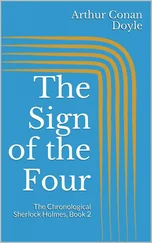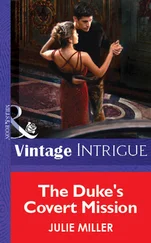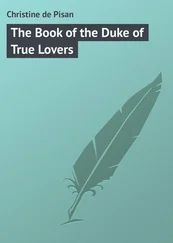Arthur Wellesley Wellington - The Letters of the Duke of Wellington to Miss J., 1834-1851
Здесь есть возможность читать онлайн «Arthur Wellesley Wellington - The Letters of the Duke of Wellington to Miss J., 1834-1851» — ознакомительный отрывок электронной книги совершенно бесплатно, а после прочтения отрывка купить полную версию. В некоторых случаях можно слушать аудио, скачать через торрент в формате fb2 и присутствует краткое содержание. Жанр: Биографии и Мемуары, foreign_antique, на английском языке. Описание произведения, (предисловие) а так же отзывы посетителей доступны на портале библиотеки ЛибКат.
- Название:The Letters of the Duke of Wellington to Miss J., 1834-1851
- Автор:
- Жанр:
- Год:неизвестен
- ISBN:нет данных
- Рейтинг книги:5 / 5. Голосов: 1
-
Избранное:Добавить в избранное
- Отзывы:
-
Ваша оценка:
- 100
- 1
- 2
- 3
- 4
- 5
The Letters of the Duke of Wellington to Miss J., 1834-1851: краткое содержание, описание и аннотация
Предлагаем к чтению аннотацию, описание, краткое содержание или предисловие (зависит от того, что написал сам автор книги «The Letters of the Duke of Wellington to Miss J., 1834-1851»). Если вы не нашли необходимую информацию о книге — напишите в комментариях, мы постараемся отыскать её.
The Letters of the Duke of Wellington to Miss J., 1834-1851 — читать онлайн ознакомительный отрывок
Ниже представлен текст книги, разбитый по страницам. Система сохранения места последней прочитанной страницы, позволяет с удобством читать онлайн бесплатно книгу «The Letters of the Duke of Wellington to Miss J., 1834-1851», без необходимости каждый раз заново искать на чём Вы остановились. Поставьте закладку, и сможете в любой момент перейти на страницу, на которой закончили чтение.
Интервал:
Закладка:
"Since the above was written I have indeed in a few hours had additional cause for gratitude and love to God, having received a letter from the Duke apologizing in every way I could expect, considering all circumstances, for occasioning my displeasure. Oh! how gracious is the Lord of Heaven and Earth thus to undertake for so unworthy a worm! for which I praise Thee, I bless Thee, I magnify Thee to Whom all power, majesty and dominion belong!"
The Duke's letter of apology is full of calm dignity, but one regrets that the accusation was not dismissed with a show, at least, of righteous indignation.
London, Jan. 13, 1835.My dear Miss J.,—I beg your pardon if I have written a line or used an expression which could annoy you. Believe me; it is the thing of all others that I would wish to avoid! And that there is nobody more strongly impressed than I am with veneration for your Virtues, attainments and Sentiments!
Believe me Ever Yours Most sincerely, Wellington.This quarrel is of chief interest as indicating that Miss J.'s anxiety for the Duke's soul was not altogether disinterested. If it had been, her resentment at his gallantry would hardly have been expressed in this manner. It is evident that to her mind, the Duke had been trifling with her. His kindly reception of her efforts to promote his "everlasting welfare" had raised hopes that would have seemed absurd to any one of every-day common-sense. She asserts openly in several places in her Diary that she believed it was the will of God that she should become the wife of the Duke.
In this persuasion she was confirmed by her friend Mrs. L.; and to her and to Miss J. there was nothing unreasonable in the expectation. The latter considered herself no whit inferior to the Duke in any respect, as she takes pains to affirm. Instances of this may be given from her Diary. She says:—
"I was impressed throughout my correspondence with and knowledge of the Duke with a feeling that the end God had in view was my exaltation for His Glory, or in other words to show forth His power.... I attach so little importance to rank or worldly grandeur, that I should have considered I conferred as high an honor on the Duke in bestowing my hand as he would in receiving it, of which he was well aware!"
Miss J. judged herself to be actuated by no worldly motives in her desire for such promotion. She cleverly concealed the mundane nature of her aspirations even from herself. Throughout, her declaration is that her sole aim in life has invariably been, "Glorify Thyself in Me!" By her elevation to a position where she will be a centre of observation she hopes to influence those ungodly souls by whom she will be surrounded, and to imbue them with true piety. She writes:—
"I in my turn was permitted to love the Duke, but the honor and glory of God were ever my consideration. Consequently such affection of mine being of so opposite a nature to his own was principally displayed in my watchful solicitude for his everlasting welfare, concerning which I was firm and faithful throughout, believing God would convert him eventually , causing him to shine forth gloriously in His adorable service. As in that case the erroneous impressions in my mind would in all probability have been verified, I looked forward to becoming as 'a city set on a hill which cannot be hid,' conceiving such exaltation would admit of showing forth His praises openly before men. But I doubt not that I am far happier thus situated, enjoying a lively sense of His Divine, Adorable presence than I could possibly have had under the turmoil attending more exalted circumstances. As the poor Duke evidently did everything in his power to overcome the feelings referred to, I am aware the World could form no idea of the extent or power of the same without this explanation from my pen."
The Duke's affection for Miss J. can hardly have been altogether the work of her imagination. Besides the interview copied in her Diary, there is the evidence of the correspondence. True, his epistles are lacking in open protestations of devotion. Miss J. herself remarks that the Duke's letters were always cautiously written. He was too much a man of the world to run the risk of compromising himself in black and white. But the very existence of this correspondence, extending over a period of seventeen years, is a strong argument in favor of his having felt for her a remarkably warm friendship at the least.
It can hardly be supposed that the Duke seriously intended to marry Miss J. As he himself writes to her,—
"I should not treat you as I should wish to be treated myself. The commands of all others which we ought to obey are those dictated to us by our social relations. What would be said, if I, a man of seventy years of age, nearly, were to take in marriage a lady young enough to be my Granddaughter?"
Upon this Miss J. comments:—
" Alas! Alas! how deceitful is the human heart! For I am convinced that although the Duke wrote thus, there was not a moment during our acquaintance when if I had not been by the Grace of God what I was and am that he would have thought I was too young to bow down before me with the most sinful adulation."
What was either a flirtation or a manifestation of fatherly fondness on the part of the Duke was a grand passion to Miss J. Perhaps her vanity was as deeply touched as her heart; but those who knew her best declared that never until the Duke's death did she resign all hope of becoming the Duchess of Wellington.
In another part of her Diary she writes, with the diffuseness and reiteration that mark her style:—
"That I loved the Duke I am not ashamed to say, God knows, and that too with the purest affection. Consequently when he asked me if I felt sufficient to be with him a whole life, (which was the question referred to in that odious letter, for odious indeed it still appears in my sight, yea, increasingly so with time, for I recoil with unspeakable horror from the thought that I could be thus enquired of without being clearly comprehended), I replied to the same in the following words, ' If it be the will of God ,' not supposing for a moment, as expressed, that such an enquiry could be made of one with God's Holy Book before me, to which I had been attracting his attention with all the reverence and veneration so holy an employment demanded, except under intentions the most honorable. This idea many would perhaps say must have arisen from my want of knowledge of mankind and the world etc. But in that case how was it that dear Mrs. L–, a perfect woman of the world in her early life, could think the same and consequently encourage such views?"
Long after the Duke had wearied of his passing fancy Miss J. clung to the idea that she could yet draw him to her. Her secluded life, given up to good works and pious meditations, and still later her confirmed ill-health, heightened her unworldliness, and rendered it more than ever difficult for her to see the impossibility of what in the eyes of the Duke and his family and friends would have been a misalliance.
It is perhaps uncharitable to suppose that Miss J. intended by her assumed reluctance to grant the Duke a third interview to force him to make a formal declaration of his intentions and ask her hand in marriage. If this, however, was her plan, it met with a signal failure. Clearly nothing was farther from the Duke's thoughts than to make himself the butt of popular ridicule by taking a wife forty-five years younger than himself, and of retired even though perfectly respectable social position. Besides that, it can hardly be wondered at if the Duke, a man free from binding domestic ties, were not in a humor to place permanently at his elbow so strict a mentor as Miss J., no matter how pretty she might be. The prudishness and piety that were fascinating in a beautiful woman seldom seen, would wax wearisome in the most charming creature bound to him by indissoluble ties.
Читать дальшеИнтервал:
Закладка:
Похожие книги на «The Letters of the Duke of Wellington to Miss J., 1834-1851»
Представляем Вашему вниманию похожие книги на «The Letters of the Duke of Wellington to Miss J., 1834-1851» списком для выбора. Мы отобрали схожую по названию и смыслу литературу в надежде предоставить читателям больше вариантов отыскать новые, интересные, ещё непрочитанные произведения.
Обсуждение, отзывы о книге «The Letters of the Duke of Wellington to Miss J., 1834-1851» и просто собственные мнения читателей. Оставьте ваши комментарии, напишите, что Вы думаете о произведении, его смысле или главных героях. Укажите что конкретно понравилось, а что нет, и почему Вы так считаете.












